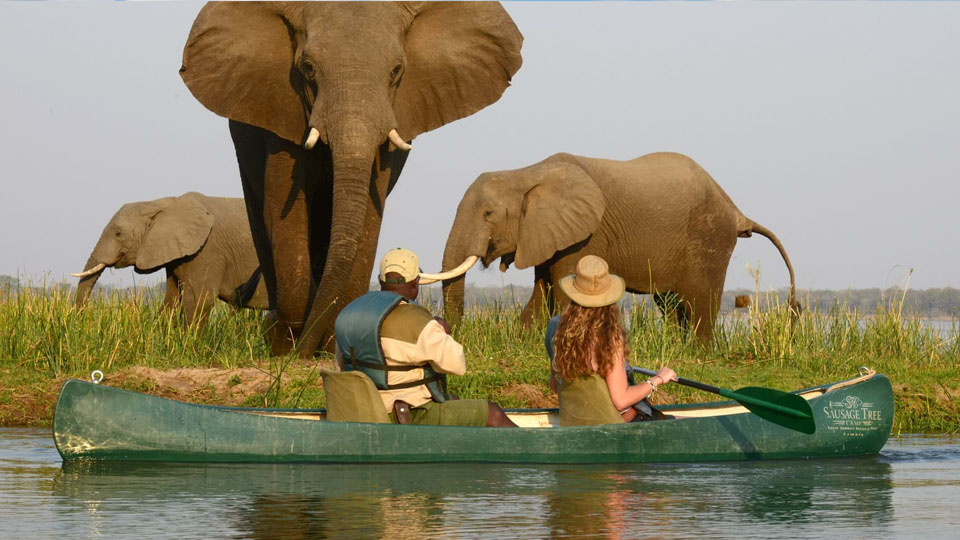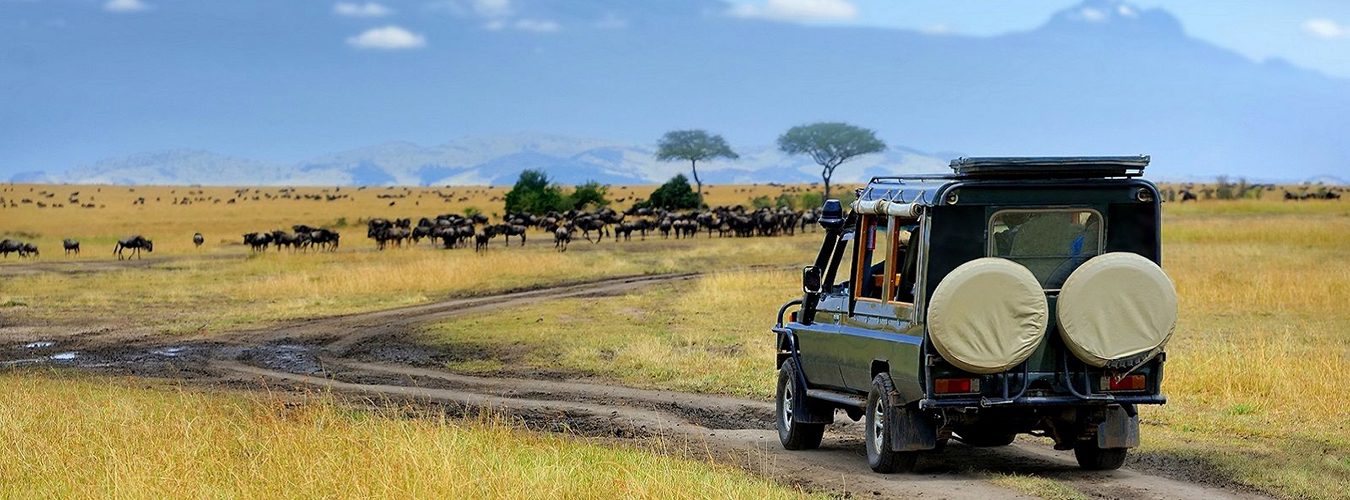
10 Reasons Why You Should Visit Tanzania
There truly is something to suit every kind of holidaymaker in Tanzania. From incredible game reserves teeming with wildlife to glorious beaches, luxurious accommodation and incredible culture and food. Here are just 10 reasons why you should think about spending your next holiday there.
1. The Great Migration
Africa is full of amazing wildlife experiences but one of the most spectacular to witness is the Great Migration. A once in a lifetime experience and on the bucket list of many a traveller to Africa, none can surpass this incredible spectacle: a million wildebeest crossing the plains of the Serengeti in search of fresh grass while braving predators and perilous river crossings.
2. Mount Kilimanjaro
Located in North Eastern Tanzania, Kilimanjaro is the highest mountain in Africa and can be seen from far into Kenya. The mountain represents a powerful life force for the local Chagga people and all those who have made their lives around the mountain, providing rich volcanic soils for agriculture and an endless source of pure spring waters. 75,000 people climb Kilimanjaro every year so it is not the most untouched mountain, nor is it the most arduous, however it is still an awe inspiring sight to behold and highly recommended for anyone with even a vague interest in mountaineering.
3. Zanzibar
What better way to round off a safari adventure through Tanzania than to spend some time relaxing in Zanzibar on one of its beautiful white sand beaches. Known as the “Spice Island”, Zanzibar has brought visitors from other lands since time immemorial – Persians, Chinese, Arabs, Indians and many more have all sailed their vessels into Zanzibar’s harbour over the centuries, bent on trade and sometimes plunder. Make sure to visit Stone Town to explore its spice markets and superb Arabic architecture. If diving is more your thing then learn to dive at one of the many dive centres the local resorts boast – the waters around the island are very clear and host a huge diversity of marine life.
4. The Food
Tanzanian cuisine is a mix of traditional African food, with a strong Arabic/Indian influence, especially along the coast and in Zanzibar. Surrounded by the ocean, Zanzibar is renowned for its seafood with most hotels in the area offering a fantastic variety of fresh seafood menus. For the ultimate foodie experience, visit the Stone Town night food market. Offering a variety of delicious eats, this lively market is a must-see to experience the local people and culture.
5. Outstanding Accommodation Options
Tanzania provides visitors with a variety of choices when it comes to accommodation. For the ultimate luxury safari experience there is the Four Seasons Serengeti, for those looking for an authentic tented safari experience there are are camps like &Beyond Serengeti Under Canvas and Selous Serena Camp and for honeymooners or couples, Zanzibar offers a plethora of luxury resorts such as Hideaway of Nungwi and Ras Kutani.
6. The Maasai People
The Maasai people of East Africa live in southern Kenya and northern Tanzania along the Great Rift Valley on semi-arid and arid lands. They’re well known for the special red cloth they wear which is called a Shuka and their highly energetic customs. They openly welcome visitors to the area to experience their culture and lifestyle first hand.
7. Wildlife and Birdlife
Tanzania has the largest concentration and diversity of animals in Africa and there are over 1000 bird species to spot in the country. Tanzania is home to some of the world’s most treasured national parks and game reserves including the Selous Game Reserve, which is the world’s largest game reserve and home to more than 120,000 elephants, 160,000 buffalos and 2000 rhinos. Selous is also home to large concentrations of hippos, crocodiles and wild dogs.
8. The Ngorongoro Crater
A jewel in Tanzania’s crown is the Ngorongoro Crater, the world’s largest intact volcanic caldera and haven to a wondrous array of animal life which makes the crater a “must do” on any visit to Tanzania. The backdrop of the crater walls makes for some stunning photographic opportunities as you see the animals wander through the grasslands on the crater floor towards the lake.
9. The Western and Southern Safari Parks
Southern and western Tanzania are very often overlooked by travellers intent on visiting the more well known parks of the north, yet these regions are highly regarded among serious safari-goers. The southern parks of Selous and Ruaha offer seriously good wildlife, plus a wider choice of activities and much better value for money than can be found in Northern Tanzania. The remote western parks of Mahale and Katavi are expensive and more difficult to get to, however they do both offer a unique safari and African wilderness experience.
10. Chimpanzees in Mahale National Park
The small and remote Mahale Mountains National Park is found in the very West of Tanzania and on the shoreline of Lake Tanganyika. Chimpanzee treks are the main draw card here and seeing them in their natural habitat is a truly magical experience. When you are with the chimps you will be able to observe their very human-like behaviour as the younger ones play in the trees and the adults observe and squabble amongst themselves.
